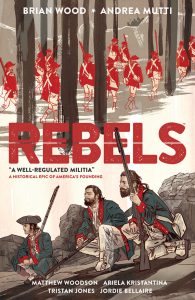 This week, Dark Horse Comics releases the first collection of REBELS. A comic book series rooted in patriotism, based on The Green Mountain Boys Militia. A group who made history with their bravery during the early days of the colonial war.
This week, Dark Horse Comics releases the first collection of REBELS. A comic book series rooted in patriotism, based on The Green Mountain Boys Militia. A group who made history with their bravery during the early days of the colonial war.The Comics Beat recent sat down with Rebels‘s writer, Brian Wood, to talk about the balance of preserving history while telling an entertaining story.
David Nieves: Looking back on it, where does Rebels rank in terms of favorite projects you’ve done?
Brian Wood: There’s so many different criteria that go into something like that… some projects of mine are close to my heart because of who my collaborators are, and others for more technical reasons. Something like DMZ, no matter what else, is important to me because its the longest book I’ve done and there’s real pride in a 72-issue run of anything. Rebels, right now, is pretty high up there on the list. I love it because its so linked to where I come from and where I grew up, and also because I’m not done with it yet it sticks in the front of my brain. I think about Rebels every day.
Nieves: Speaking of your collaborators. I’m just gonna say it. You and Becky Cloonan need to do DEMO some more.
Now back to my regularly scheduled questions. When you do research for a comics based on historical events like Rebels how much of it is verbatim and how much do you yourself reconstruct to a writer’s needs?
Wood: Well, ok, so far I’ve done 3 or 4 historical comics – Northlanders, Rebels, Rome West, and Black Road – and while some of those are more alt-history that true history, I research the same way: reading a whole lot of books. I’ve found it useful to front load as much information as possible and then just extrapolate as much as I can. So, for example, I might read something about viking cookware. Ok, so then I start making educated guesses and playing connect the dots, thinking about what sort of animals live around there and what veg they could have grown or foraged, and I can construct a scenario about home life and meals and hunting and preserving food during the winter. That may seem like a random example, but its how I figure all of this stuff out. I think I’ve gotten really good at following a trail of information and filling in the gaps.
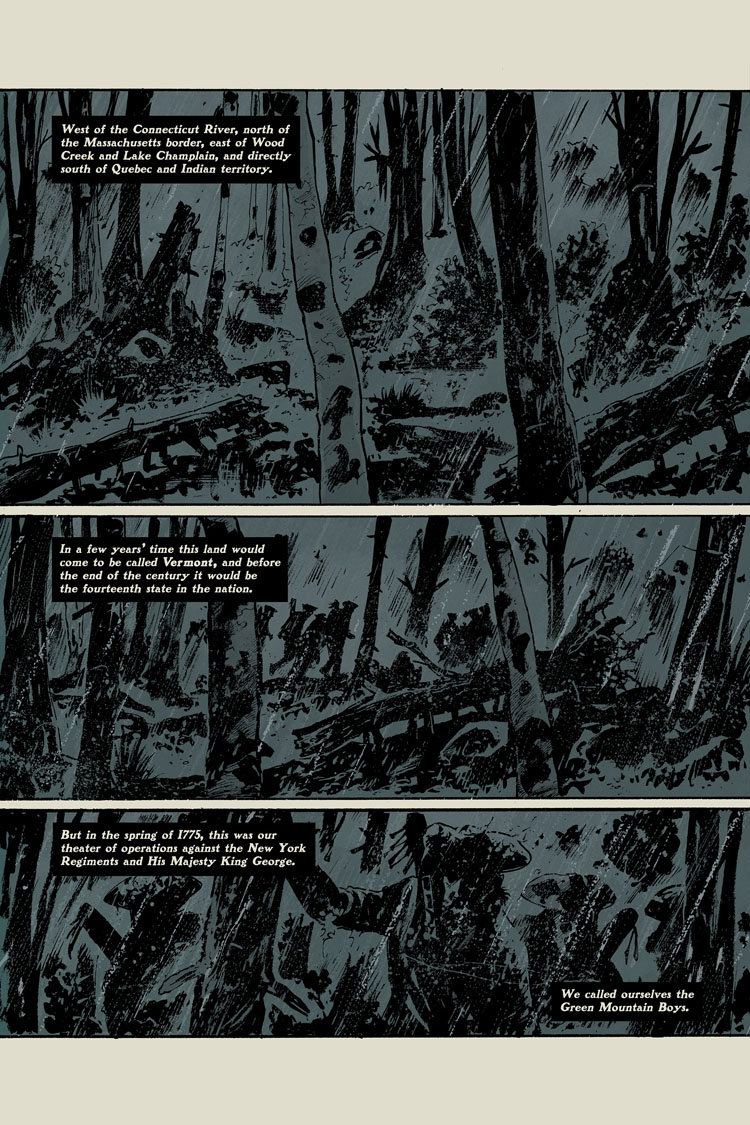
Nieves: You’re like a writers version of Nicholas Cage in National Treasure! But in all seriousness, the era this story comes from has much in the form of factual material. How do you navigate the minefield?
Wood: With Rebels, there is a lot more available written history to draw from, so there’s less guesswork than with the viking era. I also have to be more mindful about educated readers calling me out if and when [I] fudge things. So I work really hard to get the major plot of history right and the key details, and express the fiction in the characters themselves, their thoughts and opinions and world views. Although I recently received some angry tweets about the accuracy of beards some of the characters wear, but there’s not much I can do about that sort of thing.
Nieves: Yeah but if you had accurate beards from that era illustrated they’d be the most disgusting things printed in comics.
Rebels begins in the infancy of the revolutionary war with The Green Mountain Boys Militia. A group with an earned place in American History for their fight against the crown. In your mind what traits did Seth Abbot need to have to fit in their story?
Wood: Well, he’s an everyman type of character, a rural woodsman who gets involved at the extreme local level and grows from there as the conflict itself grows. I had a lot of fun with the idea of militia and what it means then versus what we associate with that word now. Seth gets radicalized almost immediately as foreign soldiers start showing up in his community and harassing innocent people. From there he meets influential men who educate him and bring him into the larger conflict and on until he’s finding himself face to face with the likes of Benedict Arnold and George Washington.
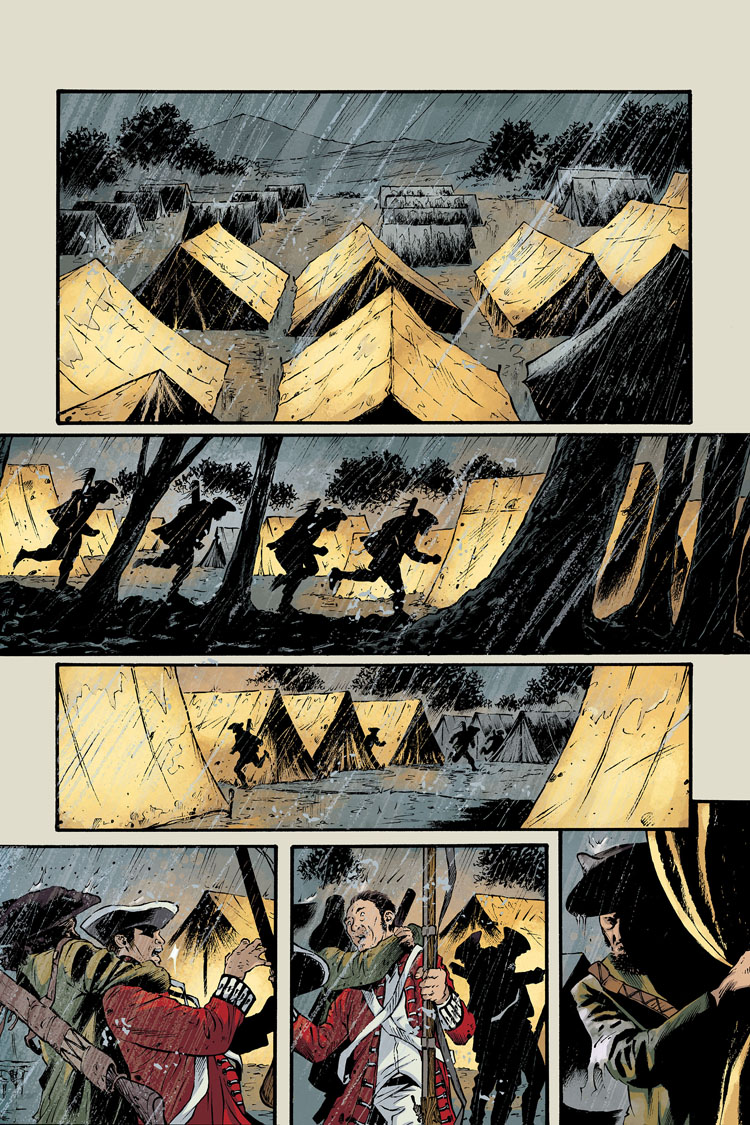
Nieves: The Green Mountain Boys militia would later in parts become the Green Mountain Continental Rangers before being disbanded. Have you thought about how Seth Abbot would fit into that story?
Brian Wood: I don’t state it outright, but Seth was probably a member of the Rangers by the end of the story. He fights until the very end in 1783, identifying himself throughout as a Vermonter by word and by wearing his green coat.
Nieves: And as you said, this isn’t something your necessarily done with so we could find out how Seth’s last days went down or at least till the end of the revolution.
One of the most blood stirring tales of the book is the military record of Sara Hull and how she’s denied a full military pension for her service in battle alongside the men. Even though some of these characters were your creation, events much like those took place in those days. It feels so polarizing to have a mindset go from patriotism “GO AMERICA!” to wanting to rebel against our own system. Why was it important for you to tell that particular chapter in Rebels?
Wood: Like with Northlanders, the point of writing these stories is to find that connection between the then and the now, to make this history relevant and interesting and emotional to the reader. Women in combat and veteran’s issues are current events right now. This chapter is one of my favorites, and its a perfect example of why I’m compelled to write historical fiction.
I’m also attracted to American folk tales, and the story of Molly Pitcher, which is who Sarah Hull is modeled after, is something I know from childhood and has stuck with me over the years. History that’s obscure, ignored, or straight up forgotten is usually the best stories to tell.
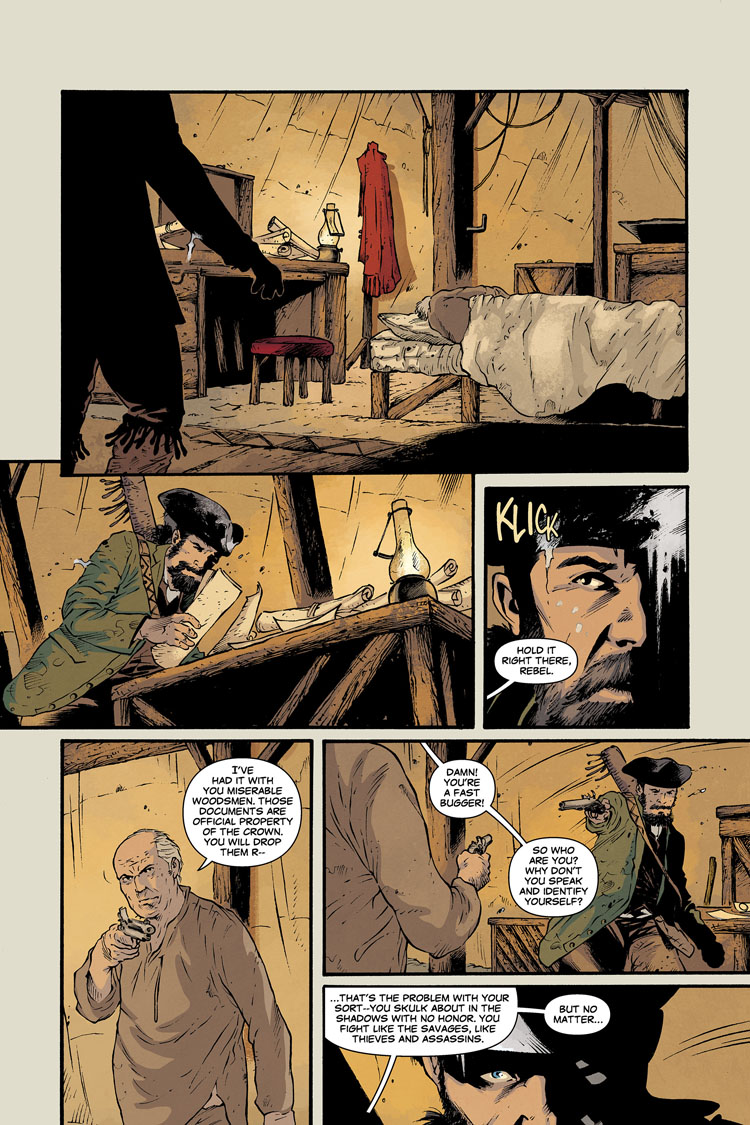
Nieves: Rebels final chapter tells a unique story for a patriotic account of history. Kilroy is a British criminal who’s almost sentenced to death by being drafted into the war. It’s also the only story in the book told from the enemy POV. What was your motivation for ending such an Americana book (at least this volume) with that story and the significance of the quote on the final page?
Wood: Kilroy is technically a criminal in the sense he was convicted, but the idea of the soldier following orders to a tragic end is a theme I’ve explored in DMZ and The Massive, and always find it poignant. The Boston Massacre is terrible, it was a terrible thing but its also the event that kicked the revolution into gear and I wanted to show it from the other side. The redcoats are usually portrayed in media as a line of drones, people without individual identity, but for every gentlemen in the uniform were a thousand poor kids pressed into service to serve as cannon fodder. I wanted to contrast that story against the themes of American independence.
That final quote was something I found early in my research and jotted it down on the cover of my Rebels notebook, as I felt it was a central concept of this series. It means, to me, a couple things: first that simply the army of the Continent was built of every day people who were both soldiers and citizens at the same time. You can go a layer deeper, that under a republic the military is subservient to the people, to a civilian authority. Its one of the founding principles of the republic, and a sharp contrast to the Crown, to the system that Kilroy is consumed by.
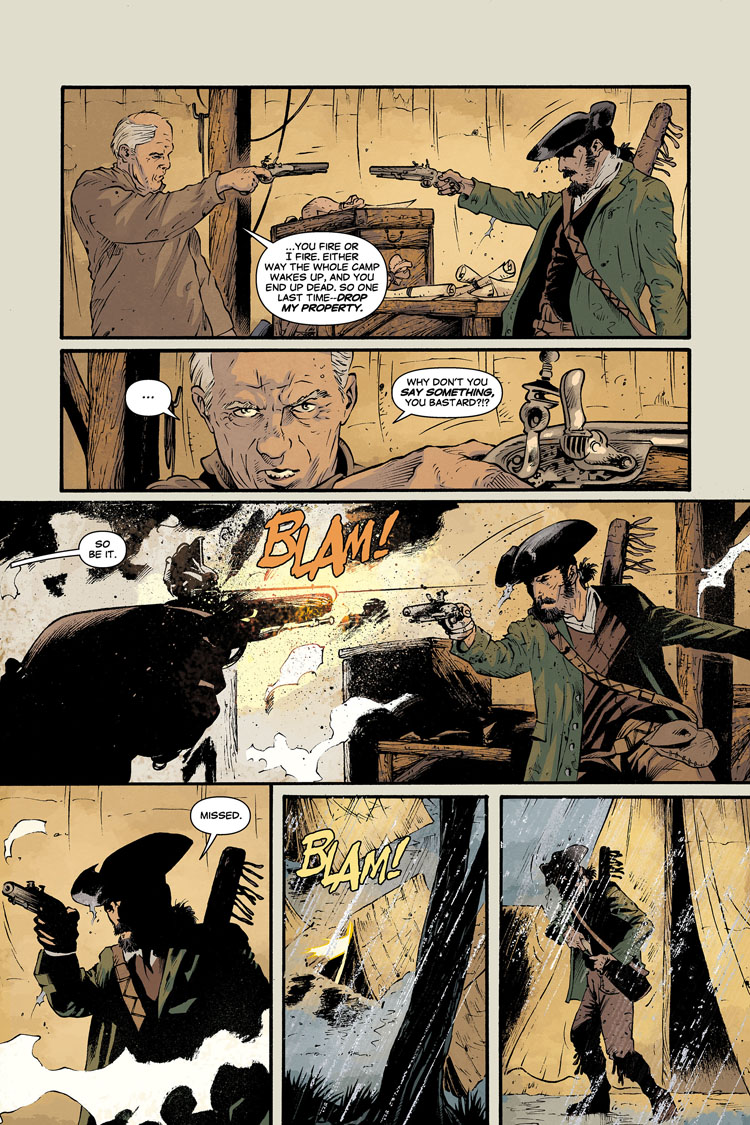
Nieves: It really makes one think about how Great Britain must tell their side of the revolutionary war.
You’ve done the viking period, now early colonial America. Do you have any interest in other periods of history? Maybe a book about America being back-to-back World War Champs? Merica!
Brian Wood: What I’ve realized is that I can’t credibly write books like this without finding a personal connection for myself. I need to genuinely care and get myself invested in order to do this. My connection to Rebels is easy and obvious, and I was able to find my way into Northlanders by basically working out my new-father anxieties and fears on the page, which is probably not as obvious to the reader. So what might be next, I don’t know yet. I’d love to write more Rebels, and I have some notes for something about those American folk tales I mentioned. We’ll have to see.
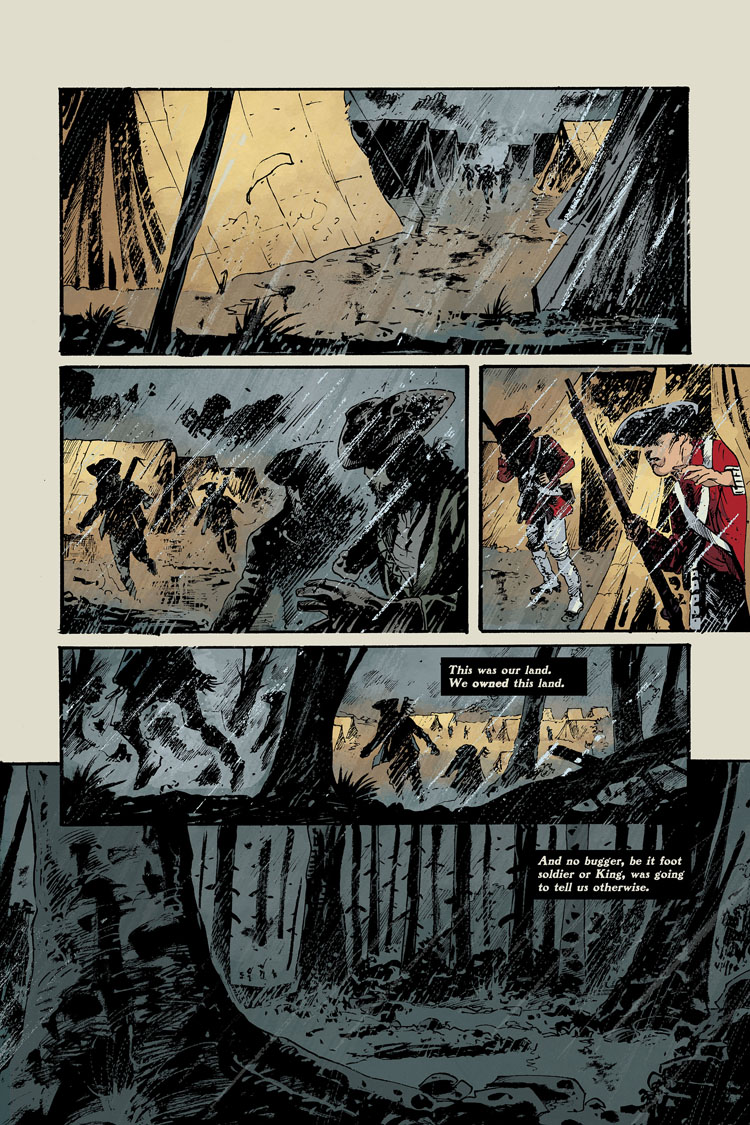
Nieves: Well Rebels was an insightful read and it actually reminded me to file my taxes this year, so I can’t wait to see read what you’ve got in the pipeline. I’m betting it’ll be a Rebels/Alien crossover. Note: I’m not good at gambling.
Grab a copy of Rebels Volume 1: A Well Regulated Militia when it lands in all book stores and online this week.


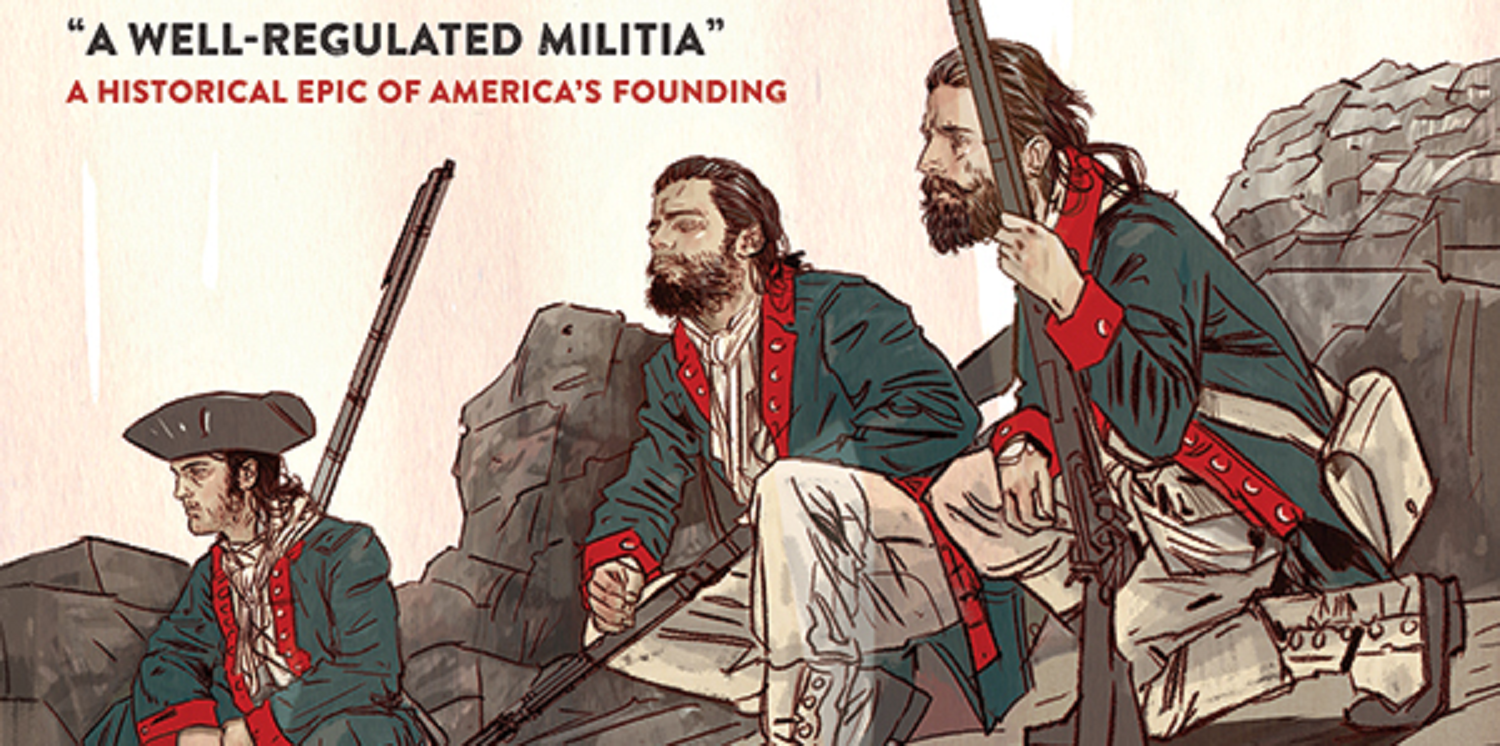
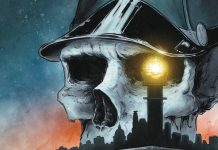
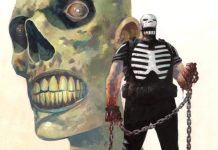

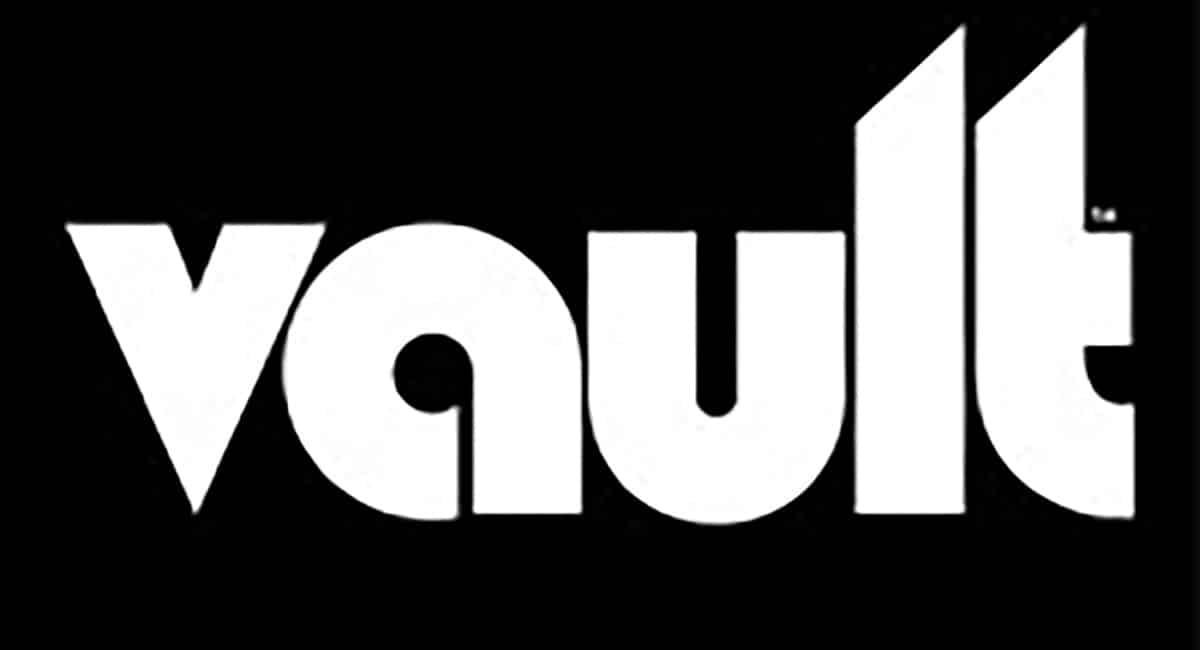

Really enjoyed this one too.
I hope future issues deal with the constituional convention. specifically, when George Washington was at the convention and got drunk and tried to cheat on Martha Washington with a younger female convention attendee. Perhaps George Washington could tell the younger female convention attendee how good her work (in drafting constitutions) is before he tries to seduce her.
Comments are closed.